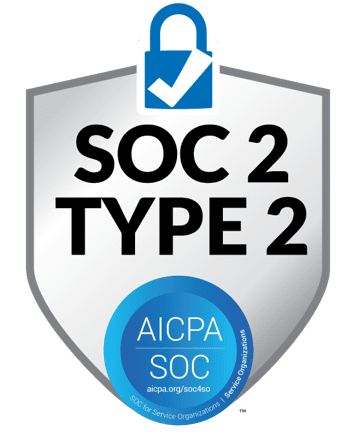You share documents, personal details, and sensitive information with AI chatbots like ChatGPT every day. Most people don’t realize how this data gets stored, processed, and potentially used by these companies.
AI tools collect and retain much more of your personal information than you might expect, including conversation history, uploaded documents, and behavioral patterns that can reveal intimate details about your life.

When you upload a work document or ask about personal problems, AI chatbots can access and analyze far more than just your immediate question. These systems learn from your interactions and may store your data for training purposes or share it with third parties under certain conditions.
The privacy policies and data handling practices vary significantly between different AI companies. Knowing these differences can keep your personal and professional information secure.
How ChatGPT and AI Chatbots Handle Your Private Data

ChatGPT and other AI chatbots collect multiple types of user information through different methods. They rely on human reviewers to examine conversations and use large language models that process your data in specific ways.
Understanding Data Collection Methods
AI chatbots like ChatGPT collect several types of data when you interact with them. Your conversations, uploaded documents, and account information all get stored in their systems.
Text-based inputs form the largest category of collected data. Every message you type gets processed and may be saved for future use.
This includes questions, follow-up responses, and any personal details you share. File uploads create another data collection point.
When you upload documents, images, or other files, these materials get processed by the AI system. The contents become part of your interaction history.
Account and usage data round out the collection methods. This includes:
- Your IP address and location
- Device information
- Time stamps of conversations
- Frequency of use
Protecting your privacy while using AI chatbots requires understanding these collection methods. Many users don’t realize how much information gets gathered during typical interactions.
Human Review and Document Access
Human reviewers at OpenAI and other companies can access your conversations and uploaded documents. This review process happens for quality control and safety purposes.
Training data review involves humans reading through user conversations. These reviewers help improve AI responses and identify problems with the system.
Safety monitoring requires human oversight of AI interactions. Reviewers look for harmful content, policy violations, and potential misuse of the technology.
Companies typically remove personal identifiers before human review. However, the actual content of your conversations and documents may still be readable by staff members.
Using ChatGPT and other AI chatbots securely means knowing that humans might see your information. This knowledge should influence what you choose to share.
Role of Large Language Models in Data Processing
Large language models process your data differently than traditional software systems. These AI models analyze patterns in text and learn from the information you provide.
Training integration allows your conversations to become part of the model’s learning process. Unless you opt out, your inputs may help train future versions of the AI system.
Pattern recognition means the AI looks for connections between your current message and previous conversations. The model uses this information to generate relevant responses.
Data retention in large language models works through statistical patterns rather than exact storage. However, specific phrases or unique information might still be retrievable.
ChatGPT privacy risks and data use become more complex with generative AI systems. These models handle information in ways that traditional databases don’t.
Your data flows through multiple processing stages within these AI models. Each stage presents different privacy considerations and potential access points for your information.
What You Should Never Share With AI Chatbots
AI chatbots store and potentially share the information you provide. Certain types of data are risky to share.
Your personal details, work documents, and financial information can all be exposed to other users or used to train AI models.
Sensitive and Personally Identifiable Information
Personal identifiable information should never be shared with AI chatbots. This includes your full name, home address, phone number, and email address.
Your social security number is particularly dangerous to share. This information can be used for identity theft and financial fraud.
Other sensitive details to avoid include:
- Birth date and place of birth
- Driver’s license numbers
- Passport information
- Medical records or health conditions
Even seemingly harmless details like your pet’s name or childhood street can be risky. These are common security questions used to reset passwords and access accounts.
Fraudsters could use this information to impersonate you or infiltrate your private accounts. The data you share today might appear in other users’ conversations tomorrow.
Confidential Work Documents and Intellectual Property
Your company’s sensitive information should never be entered into AI chatbots. Samsung experienced a major security leak when an employee shared confidential company code with ChatGPT.
Confidential work data that you must protect includes:
- Source code and software designs
- Client lists and contact information
- Internal financial reports
- Strategic business plans
- Trade secrets and proprietary methods
Creative works and intellectual property are equally risky to share. Your original writing, artwork, or inventions could be used to train AI models and potentially appear in responses to other users.
Many companies have banned AI chatbots for certain employees and departments. Being responsible for exposing your company’s data could result in termination or legal action.
Financial Details and Identity Data
Never enter banking information or financial details into AI chatbots. Your bank details could end up publicly available and open to abuse.
Financial information to keep private includes:
- Bank account numbers
- Credit card details
- Investment account information
- Tax identification numbers
- Loan or mortgage details
You can ask AI chatbots for general financial advice or budgeting tips. However, never include your actual account numbers, balances, or transaction details in these conversations.
Be especially cautious of fake AI platforms designed to trick you into sharing financial data. Always verify you’re using legitimate AI services before entering any information.
Privacy Features and Settings in Popular AI Tools
Different AI platforms offer varying levels of privacy controls and transparency. Some tools provide incognito modes and temporary chat options, while others focus on clear privacy policies and customizable data sharing preferences.
Incognito Mode and Temporary Chat Options
Most major AI platforms now include options to chat without saving your conversation history. ChatGPT offers a “Turn off chat history” setting that prevents your conversations from being stored or used for training.
Claude doesn’t use your conversations for training by default, making every chat essentially private unless you opt in. This approach gives you automatic protection without needing to toggle settings.
Microsoft Copilot provides temporary chat modes within its interface. These sessions don’t get saved to your Microsoft account or used to improve the AI model.
Perplexity AI allows you to browse and chat in incognito mode. However, the platform may still collect some data like device information even when using this feature.
Key incognito features to look for:
- No conversation storage
- No training data use
- Automatic deletion after session
- Clear indicators when active
Privacy Policy Transparency
AI companies vary widely in how clearly they explain their data practices. Microsoft Copilot follows GDPR and other privacy rules with detailed documentation about data handling.
OpenAI’s ChatGPT policy explains that it stores prompts and replies by default. The company provides clear opt-out instructions and data deletion options through their user portal.
DeepSeek stores data on servers in China and follows Chinese privacy laws, which may offer less protection than Western standards. The policy doesn’t clearly explain data retention periods.
Grok’s privacy practices are under investigation by EU regulators for potential GDPR violations. The platform collects chat and location data but doesn’t specify storage locations.
Transparency indicators:
- Clear data collection explanations
- Specific retention timeframes
- Third-party sharing details
- Geographic storage locations
Customizable Privacy Settings
ChatGPT allows you to manage data sharing through privacy controls in your account settings. You can disable chat history, opt out of training, and delete past conversations.
Claude provides straightforward privacy controls where you can request data deletion. The platform encrypts data during transfer and storage by default.
Perplexity offers settings to limit data use but may still share information with partners. You can adjust these preferences in your account dashboard.
Microsoft Copilot integrates privacy settings with your Microsoft 365 account. You control data access through familiar Microsoft privacy controls you may already use.
| Platform | Data Control | Deletion Options | Training Opt-out |
|---|---|---|---|
| ChatGPT | High | Yes | Yes |
| Claude | High | Yes | Default |
| Copilot | Medium | Yes | Yes |
| Perplexity | Medium | Limited | Partial |
| DeepSeek | Low | No | No |
Comparing Privacy Practices of Major AI Models
Claude offers the strongest privacy protection by not training on your conversations by default, while ChatGPT and Perplexity collect your data unless you opt out. Google and Bing take different approaches, with varying levels of data collection and user control.
ChatGPT vs Claude vs Perplexity Data Handling
ChatGPT stores your prompts and replies to improve their model unless you disable this feature. OpenAI keeps your data in U.S. servers and follows GDPR rules.
You can delete your conversations through their data portal. Claude takes a different approach.
This AI chatbot ignores your conversations for training unless you specifically opt in. Your data gets encrypted during transfer and storage.
You can request data deletion at any time. Perplexity presents more privacy concerns.
The platform collects your chats and device information, and may share this data with partners. The company doesn’t clearly state where it stores your data.
You can adjust settings to limit some data collection.
| AI Model | Default Training | Data Location | User Control |
|---|---|---|---|
| ChatGPT | Yes (can opt out) | United States | Delete via portal |
| Claude | No (must opt in) | Encrypted storage | Request deletion |
| Perplexity | Yes | Unclear | Limited settings |
Google, Bing, and Other Competitors’ Approaches
Google’s Gemini collects conversation data as part of their broader ecosystem. The search giant uses your interactions across multiple services to improve their AI models.
You can manage some privacy settings through your Google account. Microsoft’s Bing Chat (now Copilot) connects to your Microsoft 365 data when available.
The platform stores information in Microsoft’s cloud with EU storage options available. Business users get stronger privacy controls than personal accounts.
DeepSeek raises significant privacy red flags. This Chinese AI platform collects your chats and tracks your typing behavior while storing data on servers in China.
Users have few options to control or delete their information. Grok from xAI also presents concerns.
The platform collects chat and location data, and EU regulators are currently investigating its training practices. Data storage locations remain unclear.
Document Privacy Risks and Strategies for Protection
AI tools like ChatGPT can expose your sensitive documents and personal information to significant cybersecurity risks. Understanding these vulnerabilities and implementing proper data protection measures helps safeguard your confidential information from potential breaches.
Cybersecurity Threats and Vulnerabilities
Your documents face multiple cybersecurity threats when using ChatGPT and similar AI platforms. These risks can compromise your most sensitive data.
Data retention policies create long-term exposure risks. AI companies may store your conversations and documents for training purposes.
This means your private information could remain on their servers indefinitely. Prompt injection attacks allow hackers to extract your previous conversations.
Malicious users can craft special prompts to access other users’ data or system instructions. Your documents may leak through unintentional data exposure.
Samsung engineers accidentally shared proprietary source code with ChatGPT while debugging software. Third-party integrations expand attack surfaces.
Plugins and connected apps increase the number of systems that can access your sensitive data. Model training risks mean your inputs could appear in future AI outputs.
Your confidential documents might accidentally surface in responses to other users.
Tips for Minimizing Data Exposure
You can protect your documents by following specific strategies that limit data exposure while using AI tools. Never upload sensitive documents containing financial records, medical information, or trade secrets.
Companies like Apple have banned internal ChatGPT use to prevent data leaks. Remove identifying information before sharing any document.
Strip out names, addresses, phone numbers, and company details from files. Use data loss prevention (DLP) tools to monitor and control document sharing.
These solutions help prevent sensitive data from leaving your organization. Implement zero-trust policies for document access.
Verify every user and device before allowing access to confidential files. Enable privacy settings in AI tools when available.
Turn off data training features and conversation history storage options. Create document classification systems to identify sensitivity levels:
- Public: Safe to share anywhere
- Internal: Company use only
- Confidential: Restricted access required
- Secret: Never share externally
Frequently Asked Questions
Users often wonder about data handling practices and privacy protections when using AI chatbots. Understanding retention policies, third-party access, and security measures helps you make informed decisions about what information to share.
How does ChatGPT handle sensitive information input by users?
ChatGPT stores your conversations on OpenAI’s servers by default. The system can access and review your chats for model improvement unless you opt out.
Your conversations may be used to train future AI models. This means your sensitive information could become part of the training data.
You can disable model improvement features in your settings. This prevents your chats from being used for AI training purposes.
The platform also offers temporary chat modes. These sessions are not saved or used for model training.
What measures are taken to ensure document privacy when using AI chatbots?
ChatGPT uses encryption to protect data during transmission. Your conversations travel through secure connections between your device and OpenAI’s servers.
The company implements access controls for employee data viewing. Only authorized personnel can review user conversations under specific circumstances.
You can manage your chat history through account settings. Options include deleting individual conversations or clearing all chat data.
Memory management features let you control what information the AI remembers about you. You can ask what it remembers and clear stored details.
Can conversations with ChatGPT be accessed by third parties?
OpenAI employees may review conversations for safety and policy violations. This access is limited to specific situations and authorized staff.
Shared chat links create public URLs that anyone can access. These links remain active until you revoke them manually.
Law enforcement may request user data through legal processes. OpenAI responds to valid legal requests according to their policies.
Third-party data breaches could potentially expose user conversations. While no major breaches have occurred, the risk exists with any online service.
What data retention policies apply to information shared with ChatGPT?
OpenAI’s data retention policies determine how long your conversations are stored. Standard accounts keep chat history indefinitely by default.
You can delete individual conversations or your entire chat history. Deleted chats are removed from OpenAI’s active systems.
Account data remains on backup systems for up to 30 days after deletion. Complete removal requires this additional processing time.
Business and enterprise accounts may have different retention schedules. These policies often include longer storage periods for compliance purposes.
How can users protect their privacy while interacting with AI tools?
Never share passwords, social security numbers, or financial information with ChatGPT. Avoid inputting any confidential data you wouldn’t want stored or reviewed.
Use temporary chat mode for sensitive discussions. This prevents conversations from being saved or used for training.
Enable two-factor authentication on your OpenAI account. This adds extra security against unauthorized access.
Log out after each session, especially on shared devices. Consider using the “log out of all devices” option periodically.
Are there any known breaches involving ChatGPT and user privacy?
OpenAI experienced a chat history bug in March 2023. Some users could briefly see titles from other users’ conversations.
The company quickly identified and fixed this issue. No full conversation content was exposed during this incident.
A separate bug allowed some users to see payment information from other subscribers. This affected a small number of ChatGPT Plus users.
Privacy risks remain with any cloud-based service that stores user information.


